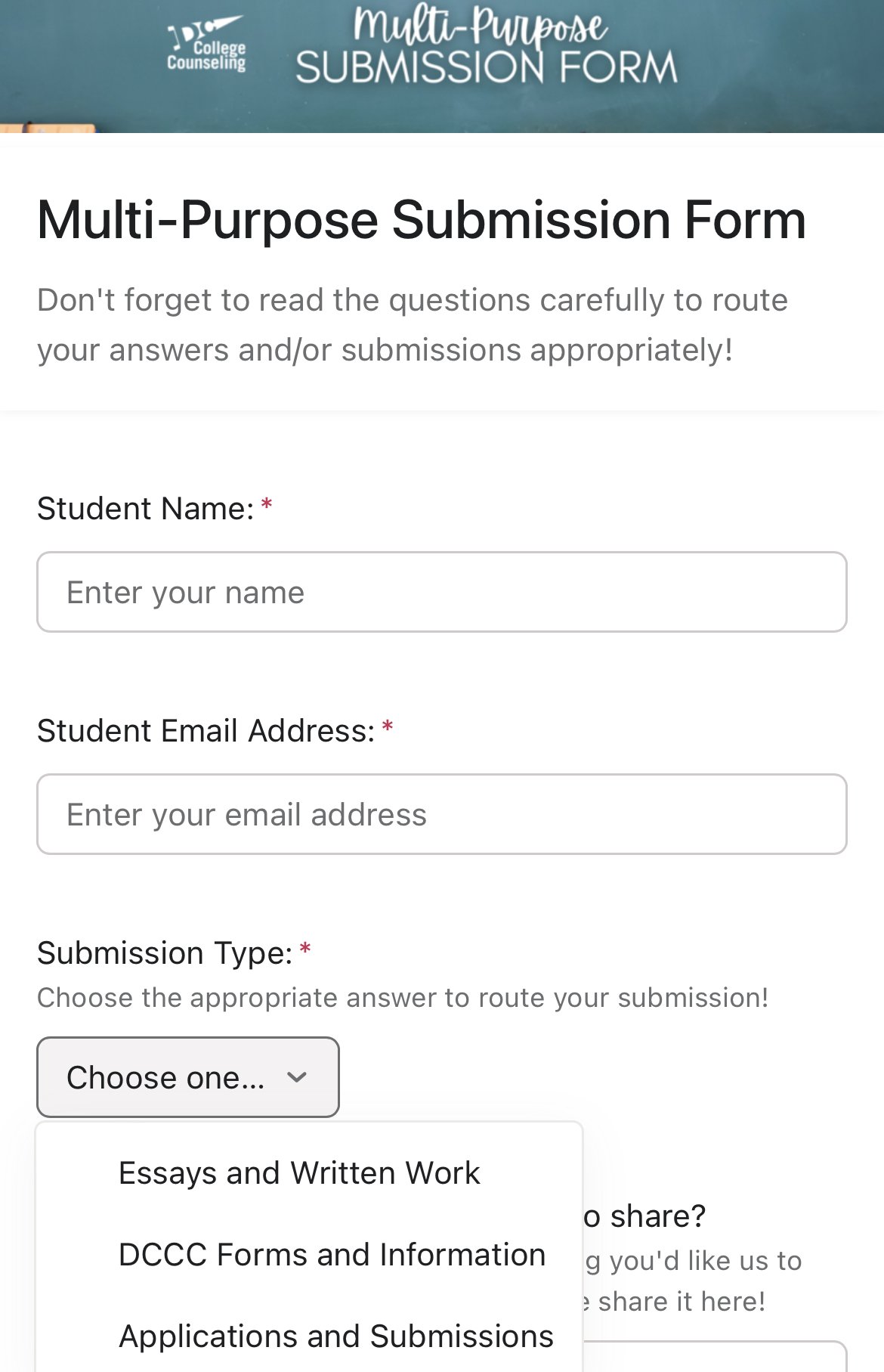It’s National Decision Day!
May 1 used to mark the end of the college admissions cycle in a given year, but not this year — everything is just completely up in the air because of all of the FAFSA issues.
And the most interesting part is the widespread nature of the impact: most of our clients don’t apply for need-based financial aid, so you’d think it wouldn’t matter for them, right? Wrong. The drawn-out timeline and increased reliance on waitlists is impacting everyone.
Not to mention the fact that colleges and universities across the country are experiencing absolute chaos right now in terms of student protests (more on that below). There’s only so much tear gas and riot gear that high school seniors can see on tv before they begin to reconsider the type of school community with which they’d like to affiliate. And that goes both ways - the protests are very appealing to some and very unappealing to others!
BIGGEST COLLEGE-RELATED NEWS OF THE WEEK
COLUMBIA CRACKS DOWN AFTER BUILDING TAKEOVER
The situation at Columbia escalated significantly over the last week as professional protest consultants worked to exacerbate (and, it is suspected, to fund) the encampment of student protesters. The group then ultimately occupied, vandalized, and blockaded a campus building, Hamilton Hall.
Mayor Eric Adams issued a “shelter in place” order on campus and brought in over 100 NYPD police officers dressed in riot gear, who arrested over 230 students at Columbia last night. These students now face expulsion from the university. He explained: “This is a global problem, that [the] young are being influenced by those who are professionals and radicalizing our children. And I'm not going to allow that to happen.”
At this point, the campus is closed to everyone except for essential staff and students who live in residence halls, with only one campus access point.
HUNDREDS OF ADDITIONAL PROTESTS CONTINUE AROUND THE COUNTRY
While we are hopeful that the situation at Columbia will begin to improve over the next few days, similar demonstrations continue to rage on at many other campuses around the country. From state troopers in riot gear at the University of Texas at Austin to UCLA to UNC and more, nearly 400 demonstrations have taken place and continue to occur at schools all around the country. These have resulted in consequences ranging from suspensions, expulsions, cancelled classes and disrupted graduation ceremonies — a particularly unfortunate situation for a cohort of students that missed their high school graduation ceremonies during the Covid-19 outbreak in the spring of 2020.
STILL NEED A HOME FOR NEXT YEAR? YOU’RE IN LUCK
Whether you’re dealing with waitlist uncertainty, financial aid confusion, or protest fear, more students than ever have begun to reconsider their college choices for the upcoming year. We definitely don’t recommend making hasty decisions about this kind of thing, but there are a few circumstances in which a pivot may make sense. Fortunately, the National Association for College Admission Counseling posts a list of colleges with spaces remaining this fall. The list has over 200 options at the moment, although it is updated daily. Check it out - there are some good choices here, including Colorado State, Ithaca, Rollins, St. Joseph’s and more!
BEST ARTICLES OF THE WEEK
Shout out to my mom for sending me this article, which was a great one! Noting that "something feels distinctly off on Ivy League campuses” after years of increasing student entitlement that culminated in the recent protests, Forbes announced a list of twenty “New Ivies,” universities “producing the hard-working high achievers that employers crave.”
But students and parents shouldn’t get too excited — the acceptance rates at the private schools on the list are still extremely low, and the public school acceptance rates incorporate individual state legislation that makes the shared statistics largely non-representative for most applicants.
On the private side, they seem to have forgotten to include a certain school in St. Louis, but I’ll forgive that: the list includes many great options, ranging from Vanderbilt and Emory to Notre Dame, Georgetown, Boston College and more. I was also somewhat surprised that Duke and NYU were not on the list (probably too many protesters). The public institutions include all the usual suspects, including Michigan, UNC, Florida, Wisconsin, and of course our DMV favorites UVA and UMD. The only one that surprised me a little bit was SUNY Binghamton, a school to which we rarely have any students apply. I would have expected to see a mention of Indiana or UGA over Binghamton.
Speaking of public schools - Nate Silver is no exception to everyone singing their praises this year. In a recent blog post, he too reflected on the idea that state schools are often a better choice for most students than top-tier Ivy League programs (especially those going to “find themselves”).
One item that I wanted to clarify: he gave a few exceptions of students who might benefit from going to top-tier Ivy League programs, and one of those had to do with students planning to study law: “I’d … tell them to go with the elite private college,” he wrote, “If (i) they had a high degree of confidence in what they wanted to do with their degree and (ii) it was in a field like law that regards the credential as particularly valuable.”
He’s referring to law school here, not undergrad — students planning to attend law school later are actually one of the prime examples of those who do not need to pick an undergraduate school based on name, but their law school name is very important.
And lastly — I have tried to stop posting the generic articles that discuss how crazy this year’s college admissions process was, because we have covered all of the reasons for the craziness quite a few times already and I know that all of you get it by now. This morning, however, I read a great take in the New York Times and just couldn’t help myself from sharing it, so here we go: This Is Peak College Admissions Insanity.
I really agree with the idea that institutional certainty and applicant certainty have a negative correlation, with the events of the last several years increasing the potential to manipulate institutional certainty like never before. Unfortunately, this has left applicant certainty at an all time low.
Additionally, I think it’s eye-opening to recognize that even with advantaged “applicants … whose parents had taken the wise precaution of being rich,” their wealth wasn’t enough to get them where they wanted to be! Yes, the Visi student they profiled was ultimately admitted to Dartmouth, her father’s alma mater, which is amazing. She had some other great options as well. Still, look where she wasn’t admitted - even as a full-pay student with “stellar grades” at one of the top high schools in the D.C. area and a perfect ACT score. And we can’t even chalk this up to demonstrated interest, because she applied ED to Duke. Yet it wasn’t enough!
The uncertainty is out. of. control., and the truth is that we just don’t know where a student will get in anymore. We typically know where they won’t get in, but when it comes to qualified applicants, we have no clue. Could we have predicted that this girl would not have gotten into Duke ED but that she got into Johns Hopkins RD? No way. All we can do is make sure they have an ironclad strategy and do every single little thing right, and then we just have to let the chips fall where they may. But an important part of that strategy is making sure that students’ lists are extensive and balanced enough to have choices, no matter what happens.
OFFICE HAPPENINGS
I posted on social media this morning about a new interview trend that’s giving me a lot of pause. A new question making the rounds asks students about their go-to Starbucks order, with the idea that (a) they would not have prepared for this question in advance, and (b) an excessively-complicated order is likely to reflect a high-maintenance, entitled personality.
As a loyal Starbucks consumer, you can find me almost every morning dropping by one of the Vienna/Tysons locations: Spring Hill, Pike 7, or Maple Ave. So I have really thought about this quite a bit since I learned about the trend — probably too much for my own good — and I am just not down with the idea that a Starbucks order can always be an accurate measure of personality.
First, like I mentioned, I just don’t think there’s any truth to it, at least anecdotally. Some of the most high-maintenance people I know have very simple Starbucks orders. And some of the most easygoing people I know have rather complicated orders.
But beyond that, I think that one of the reasons I’ve continued to feel bothered by this trend is that it’s just another reminder that nothing is sacred anymore! It’s frustrating that today’s high school and college students have to come up with a strategy for their COFFEE ORDER so as not to offend or rub someone the wrong way. As if ordering an $8 latte every morning isn’t bothersome enough to lots of people in its own right.
And the choices feel pretty lose-lose: if you order oat milk, you’re suddenly identifying as a liberal environmentalist (I just like the taste..). If you prefer a skinny vanilla latte, you might be accidentally fat shaming someone. If you say you just like plain coffee, they know you’re lying. Ultimately, I decided the safest approach is to respond that your order is an iced coffee with sugar or stevia. It’s plain, but not too plain. Relatively inoffensive, as far as these things go. NO MENTION OF OAT MILK!
P.S. When Starbucks got rid of sugar-free hazelnut in 2017 (such a sad time that was) I got sick of having sugar-free vanilla all the time. So I began to mix various seasonal sauces and syrups with sugar-free-vanilla — like two pumps of each — to incorporate some variation while cutting down on the calories. Only in the fall and winter, because I don’t love the spring/summer seasonal flavors. You can call me high maintenance, but I’d like to think it makes me an out-of-the-box problem-solver :)










